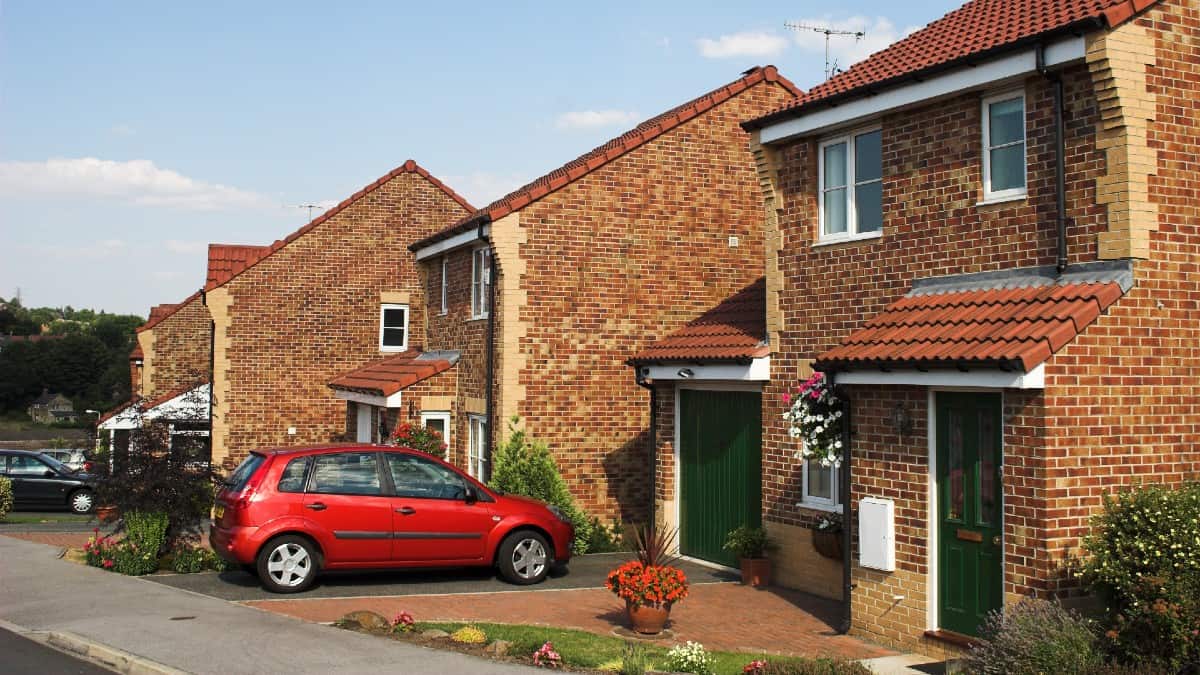Investing in property can be a great way to earn a second income. And with house prices falling at their fastest rate in a decade, I think there’s an opportunity right now that’s too good to miss.
House prices
According to data from Nationwide, property prices across the UK have been falling over the last three months, making houses just under 5% cheaper than they were a year ago.
This is very unusual – it hasn’t happened since 2009. And there’s some evidence we’re looking at a temporary phenomenon, with enquiries to estate agents already starting to rise.
That means there might well be a rare opportunity here. Investing in property can be a great source of passive income and there’s a chance to get in while UK prices are unusually low.
The average house is still around £258,000, though, and debt is becoming more expensive for those (like me) who don’t have that sort of cash on hand. But there is another way to invest in UK property.
Real estate investment trusts
Real estate investment trusts (REITs) make money by owning and leasing real estate. Their profits are exempt from tax, but they are required to distribute 90% of their income to shareholders via dividends.
Please note that tax treatment depends on the individual circumstances of each client and may be subject to change in future. The content in this article is provided for information purposes only. It is not intended to be, neither does it constitute, any form of tax advice.
That means REITs can be great sources of passive income. Investors like me can buy shares in the business, do nothing, and wait for the rental income to arrive as a dividend.
The downturn in property prices across the UK means real estate investment trusts have seen the market value of their assets decline. As a result, their share prices have also been falling.
Different REITs specialise in different areas. NewRiver REIT concentrates on retail buildings, Warehouse REIT owns distribution centres, and Big Yellow Group focuses on self-storage.
Focusing on the housing market, though, one REIT stands out to me. Shares in The PRS REIT (LSE:PRSR) have fallen by 23% since the start of the year, giving them a dividend yield of almost 6%.
The PRS REIT
PRS owns just over 5,000 houses, which it buys directly from builders and leases to tenants. There are a couple of important advantages to this approach.
First, it gives the business a source of future growth. Builders like Vistry Group and Barratt Developments have already stated their intention to build more homes for institutional buyers, like PRS.
Second, it means PRS is ahead of the UK government’s plan to raise the minimum energy efficiency standard for new leases to ‘C’ in 2025. All of the company’s buildings already meet this standard.
Around 97% of the company’s portfolio is occupied, indicating that demand is strong. And with the average rent accounting for around 25% of household income, chances of unpaid rent are limited.
Higher interest rates make it harder for the company to expand its portfolio, increasing the risk with the stock. But the long-term fundamentals look attractive to me.
In short, I think there’s an unusual opportunity in the UK with house prices falling. And PRS REIT could be a great way to take advantage of this and earn a second income by investing in property.








